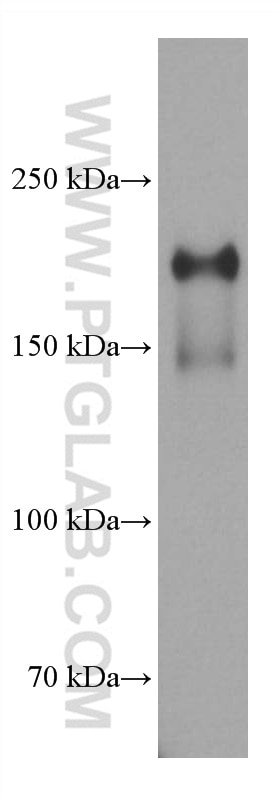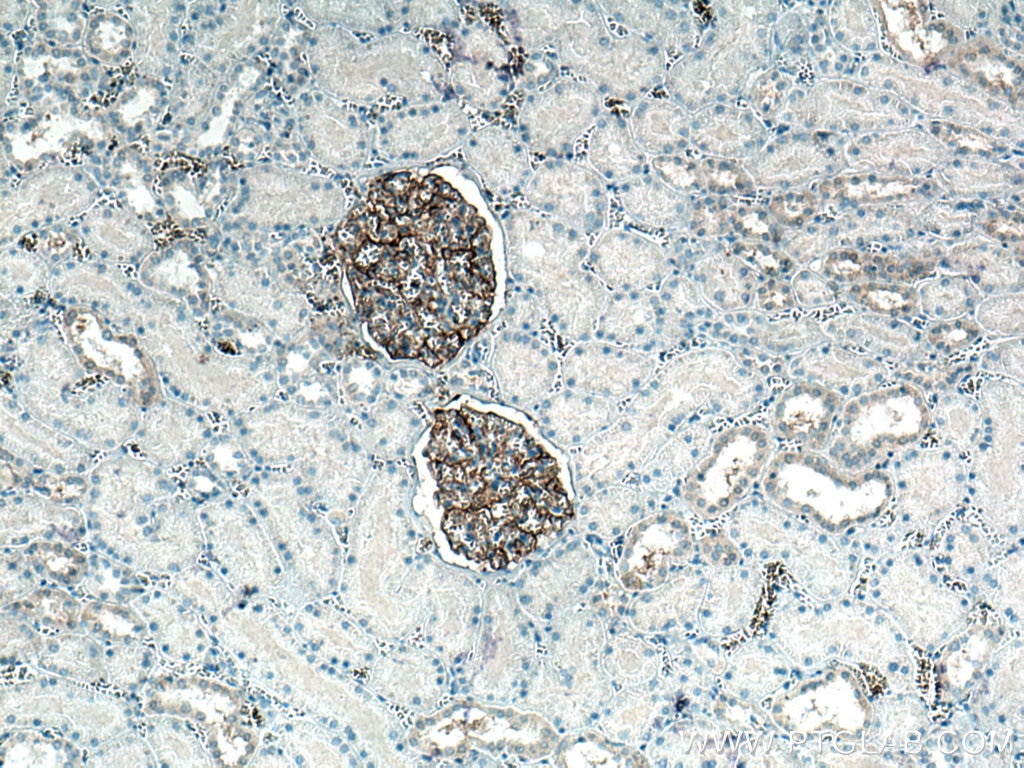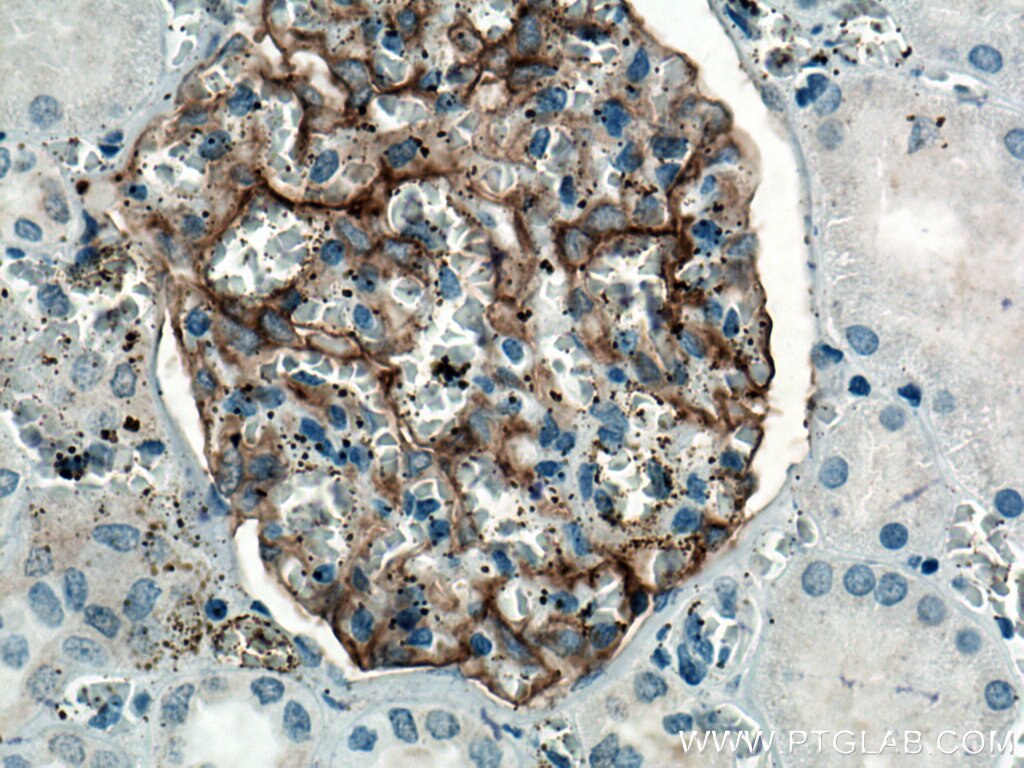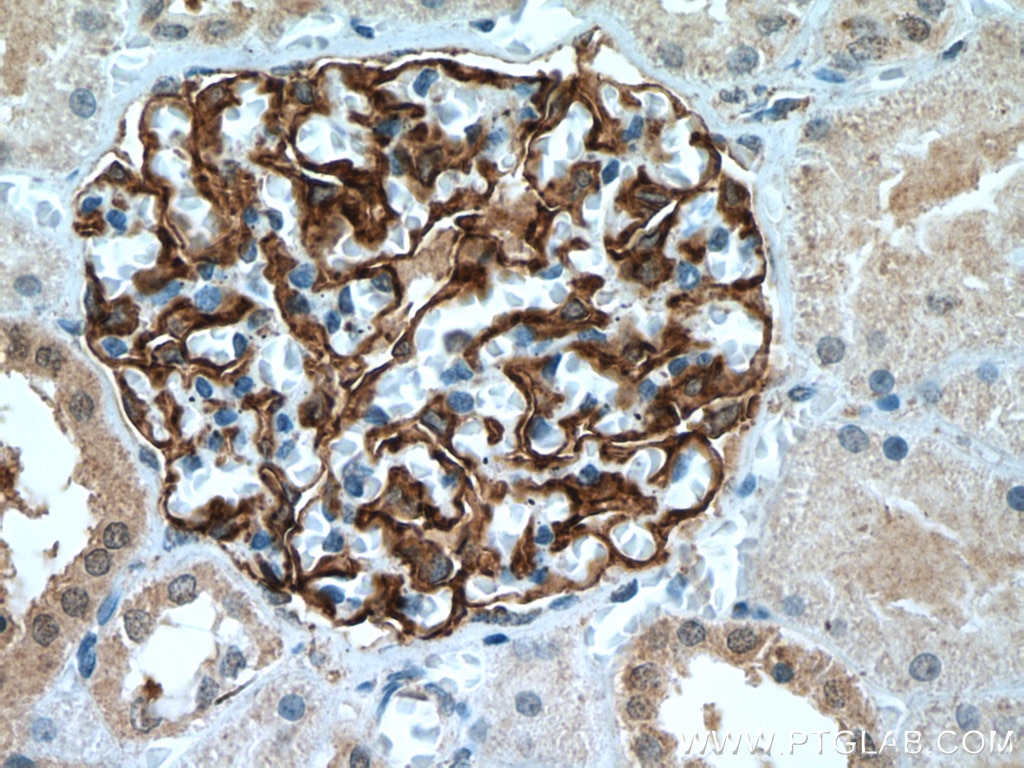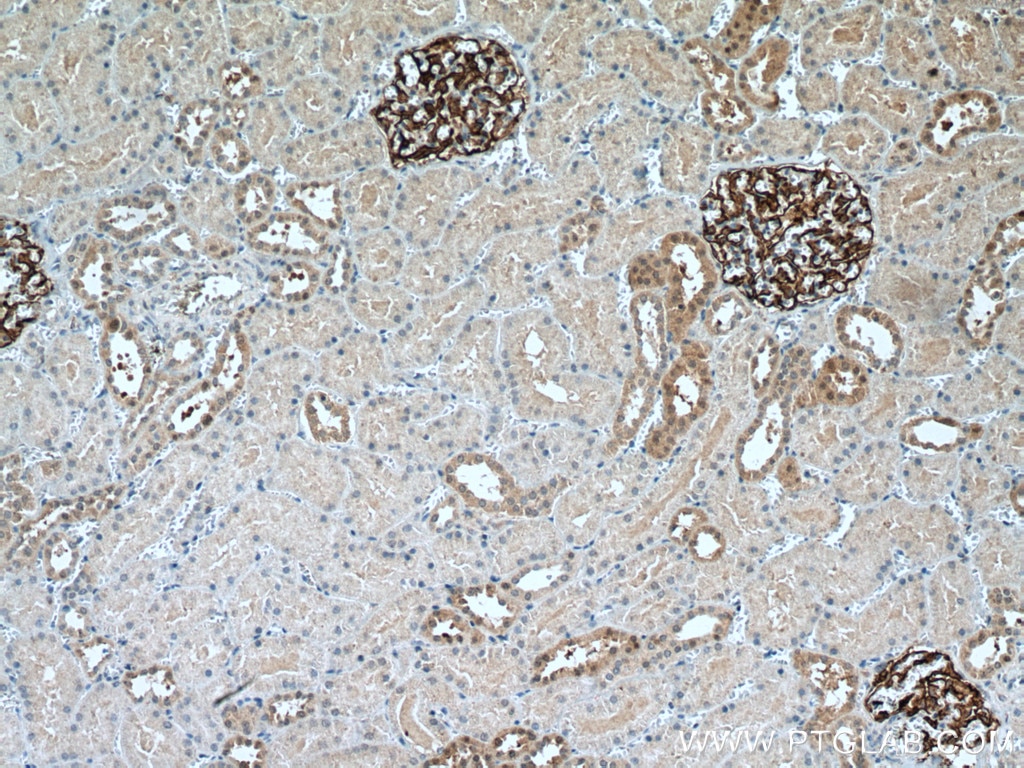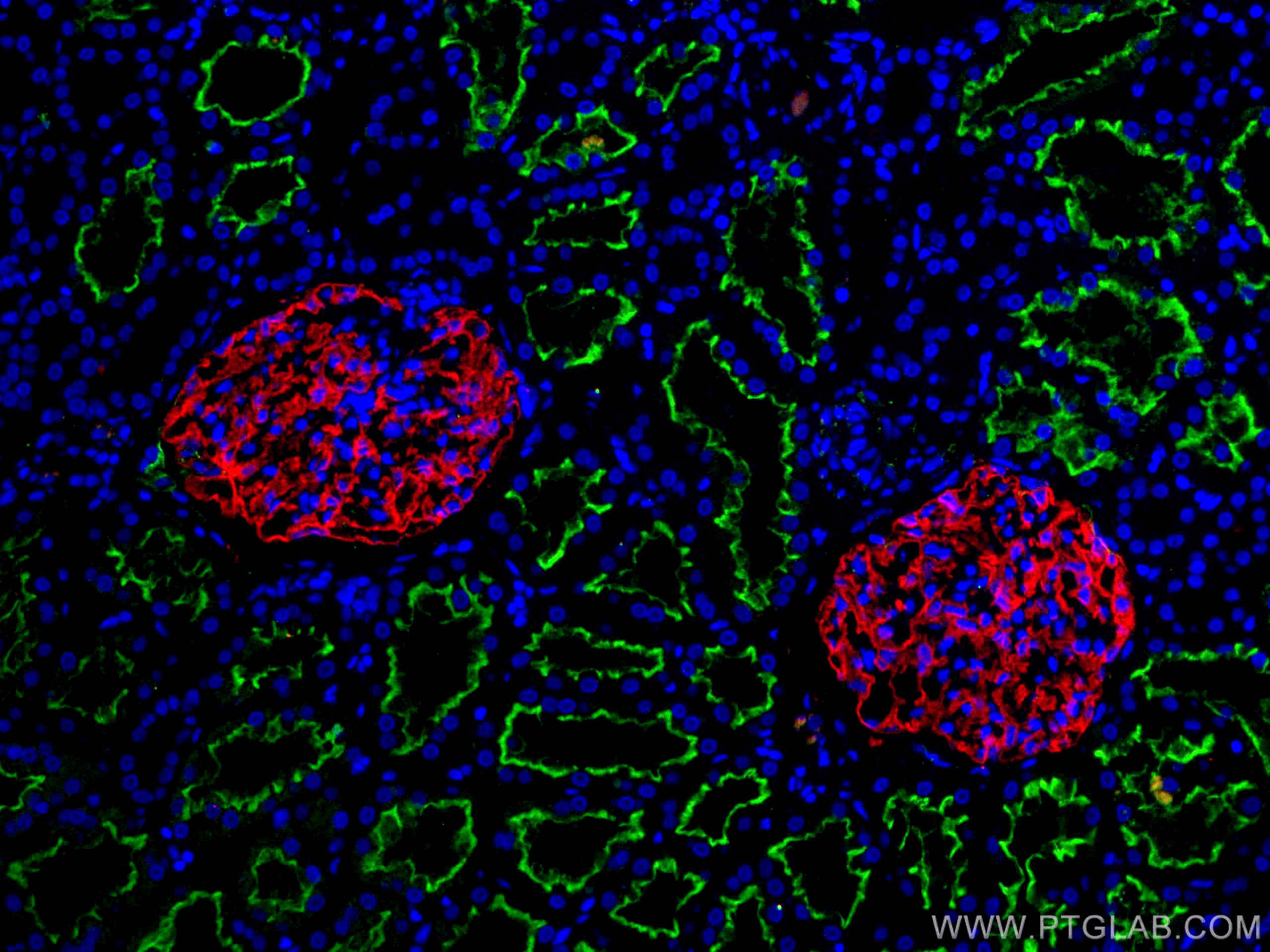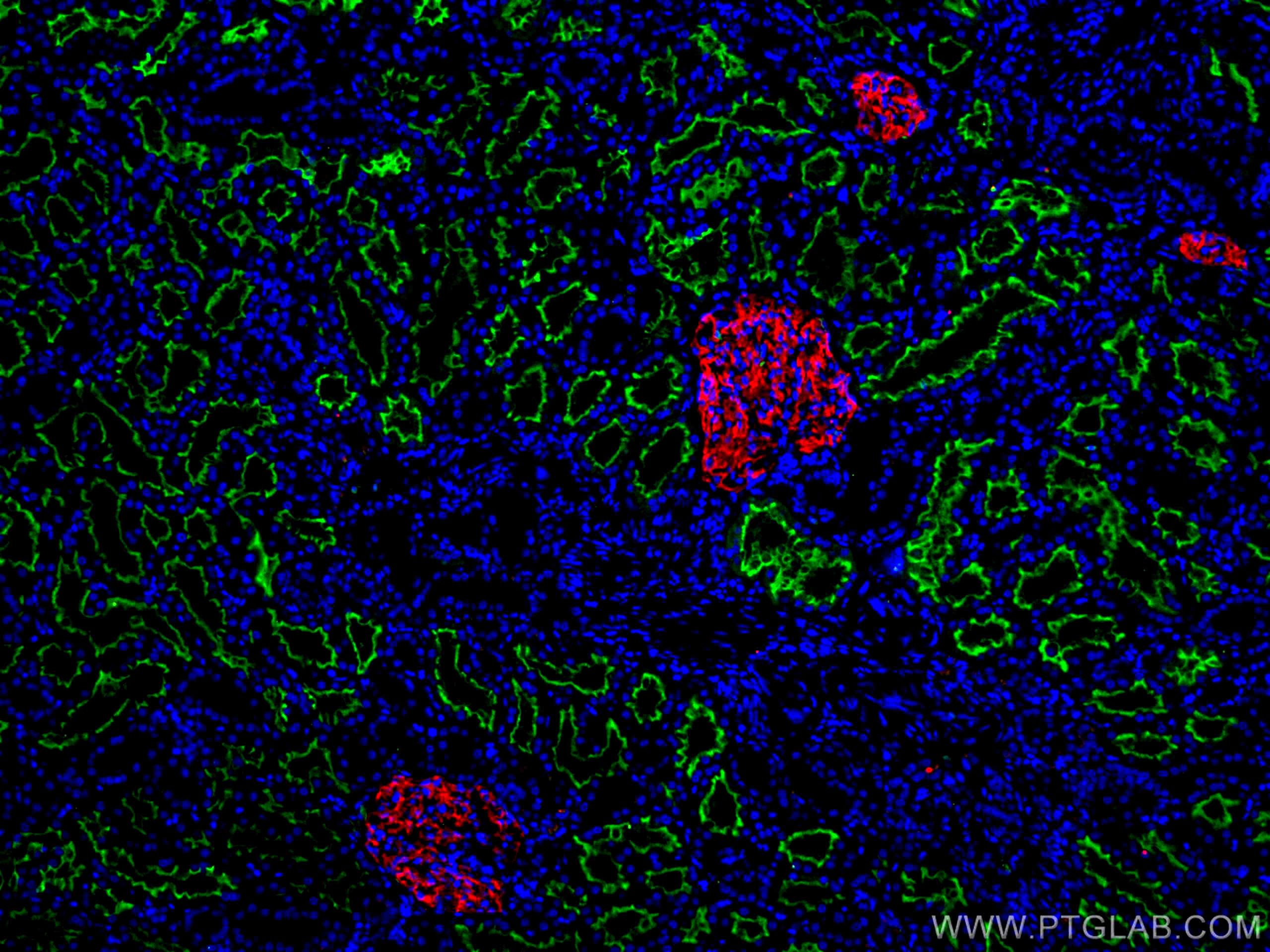Anticorps Monoclonal anti-PTPRO
PTPRO Monoclonal Antibody for WB, IHC, IF-P, Indirect ELISA
Hôte / Isotype
Mouse / IgG2b
Réactivité testée
Humain, porc
Applications
WB, IHC, IF-P, Indirect ELISA
Conjugaison
Non conjugué
CloneNo.
2F2B4
N° de cat : 67000-1-PBS
Synonymes
Galerie de données de validation
Informations sur le produit
67000-1-PBS cible PTPRO dans les applications de WB, IHC, IF-P, Indirect ELISA et montre une réactivité avec des échantillons Humain, porc
| Réactivité | Humain, porc |
| Hôte / Isotype | Mouse / IgG2b |
| Clonalité | Monoclonal |
| Type | Anticorps |
| Immunogène | PTPRO Protéine recombinante Ag8284 |
| Nom complet | protein tyrosine phosphatase, receptor type, O |
| Masse moléculaire calculée | 138 kDa |
| Poids moléculaire observé | 160 kDa, 180-220 kDa |
| Numéro d’acquisition GenBank | BC035960 |
| Symbole du gène | PTPRO |
| Identification du gène (NCBI) | 5800 |
| Conjugaison | Non conjugué |
| Forme | Liquide |
| Méthode de purification | Purification par protéine A |
| Tampon de stockage | PBS only |
| Conditions de stockage | Store at -80°C. 20ul contiennent 0,1% de BSA. |
Informations générales
PTPRO(receptor-type tyrosine-protein phosphatase O) is also named as GLEPP1, PTPU2 and belongs to the protein-tyrosine phosphatase family. The protein is a receptor-like membrane protein tyrosine phosphatase expressed at the apical membrane of the podocyte foot processes in the kidney(PMID:21722858). The 1,159-amino acid predicted mature protein contains a large extracellular domain, a single transmembrane domain, and a single intracellular PTPase domain. Defects in PTPRO are the cause of nephrotic syndrome type 6 (NPHS6). In reducing conditions, PTPRO can form a smear from 180 to 220 kDa; In non-reducing conditions, a band appeares around 350 kDa, which likely represents the dimeric form of full-length PTPRO (PMID: 19573017).
